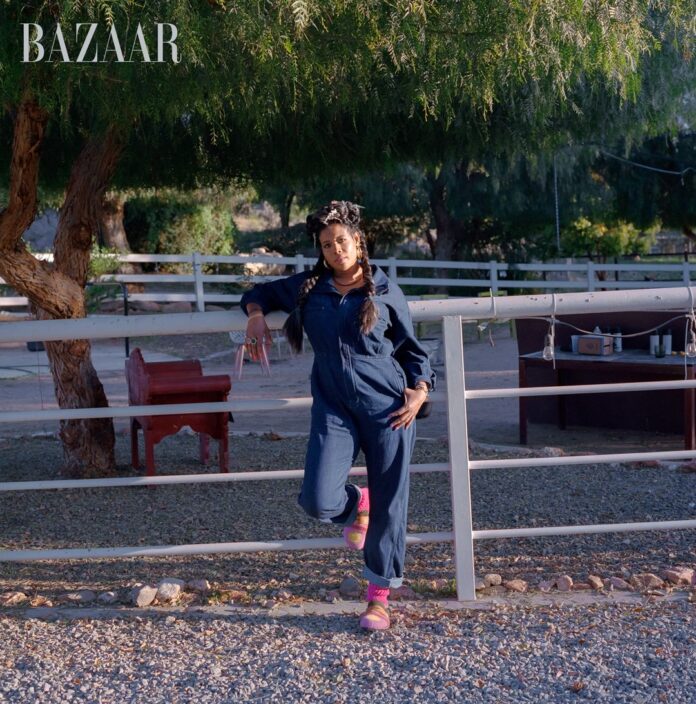When the pandemic hit, the “Milkshake” singer did what many only fantasize about doing: She sought refuge on a farm in the country, and found liberation in unruly livestock and homegrown arugula.
On transitioning to farm life: “You become farm people quickly. None of my friends would’ve pegged me as a farm person, but I’m as farm as it gets at this point.”
On being anxious on how her life would change once she moved to a farm: “It was jarring at first, to go from life on the road to the stillness of the country. It ended up being a blessing; I was able to be home and learn this land.” The experience has become, she said, a second coming-of-age.
On becoming a new mom recently: “After I had the baby—I’m 41. It wasn’t the easiest. It wasn’t like when I gave birth to my older son when I was 29. Looking at how I was going to build myself back up, the first thing I started doing was the food, and I was able to get myself back to a place where I felt physically strong again.”
On the importance of making fresh, healthy food accessible to Black and brown people everywhere: “We were proud agriculturists. The idea of farm-to-table is not a new, trendy thing. That’s an African concept. We were thriving because we were able to work the land in such a way that it was feeding our people and for generations.”
She sometimes encounters resistance among her family and friends. They will say things like, “‘Black folks don’t eat that.’ But we do, Because if it’s soul food, that’s not really soul food. That’s American food, and there’s nothing wrong with it. I love it. But when was the last time you saw cheese in any of the diaspora? When there is assimilation you lose something. Something has to be lost in order to properly assimilate. Part of being here is wanting to get some of that back and wanting to be able to have my children understand the balance of that. It’s not to say we never have a burger. That’s ridiculous. But how do we gain some control back? How do I control the quality of what we’re intaking?”
On growing her own food: “Food, she said, just hits you differently when it’s from your own garden. ‘I was like: ‘Oh, my God, this arugula is, like, pow. It is so funky.’ It had so much flavor. It’s because we grew it here—literally with sunshine and water and lots of prayer and positive thoughts.”
For right now, Kelis wants to focus on her boys: “No one dictates how they live on their small piece of earth. They are safe. They are as much in control of their lives as people can be.” I asked Kelis what she hoped for her kids with this transition. She paused, then smiled. “To be able to say: ‘I belong here. I own this. It’s mine.’ I want them to have the proper understanding of what wealth is.”

